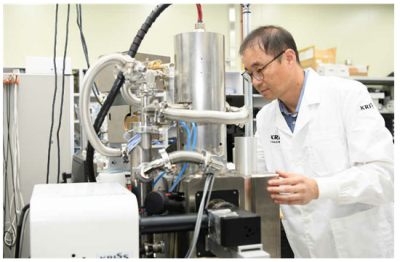Science
AI Breakthrough Transforms 2D Images into 3D Biological Structures

The Korea Research Institute of Standards and Science (KRISS) has introduced a pioneering artificial intelligence (AI) algorithm that reconstructs three-dimensional (3D) structures from two-dimensional (2D) images of biological samples. This significant advancement utilizes data captured through a scanning electron microscope (SEM), enabling researchers to visualize and analyze microscopic worlds with unprecedented speed and accuracy.
With the new image segmentation algorithm, KRISS aims to enhance the capabilities of scientific research in fields such as biology, materials science, and nanotechnology. Previously, reconstructing 3D models from 2D images required extensive manual processing and time-consuming techniques. This innovative solution dramatically reduces the time needed for analysis, allowing scientists to focus on their research rather than image processing.
Details of the AI Algorithm
Developed under the leadership of President Lee Ho Seong, the algorithm harnesses advanced machine learning techniques to interpret and reconstruct complex biological structures. By training the AI on vast datasets, researchers have enabled it to accurately identify and differentiate various components within a sample. This capability is crucial for understanding intricate cellular structures and their functions.
The implications of this technology extend beyond academic research. Industries such as pharmaceuticals and biotechnology can benefit from accelerated drug development processes through more efficient visualization of cellular interactions. As the demand for rapid and precise imaging techniques increases, KRISS’s development positions it at the forefront of innovation in this critical area.
Future Prospects and Applications
The successful implementation of this AI-powered algorithm marks a significant step forward in microscopy and imaging technology. Researchers at KRISS anticipate that this tool will not only enhance the study of biological systems but also lead to advancements in material sciences, where understanding 3D structures at the nanoscale is essential.
As the scientific community continues to explore the potential applications of this technology, KRISS plans to collaborate with various institutions and industries. By sharing their findings and refining the algorithm, they hope to establish new standards in imaging and analysis across multiple disciplines.
In summary, the development of this AI-based image segmentation algorithm by KRISS represents a critical leap forward in the ability to reconstruct and analyze 3D biological structures from 2D images. As the technology evolves, it promises to revolutionize our understanding of microscopic worlds, paving the way for new discoveries in science and industry.
-

 Business2 weeks ago
Business2 weeks agoIconic Sand Dollar Social Club Listed for $3 Million in Folly Beach
-

 Politics2 weeks ago
Politics2 weeks agoAfghan Refugee Detained by ICE After Asylum Hearing in New York
-

 Health2 weeks ago
Health2 weeks agoPeptilogics Secures $78 Million to Combat Prosthetic Joint Infections
-

 Science2 weeks ago
Science2 weeks agoResearchers Achieve Fastest Genome Sequencing in Under Four Hours
-

 Lifestyle2 weeks ago
Lifestyle2 weeks agoJump for Good: San Clemente Pier Fundraiser Allows Legal Leaps
-

 Health2 weeks ago
Health2 weeks agoResearcher Uncovers Zika Virus Pathway to Placenta Using Nanotubes
-

 World2 weeks ago
World2 weeks agoUS Passport Ranks Drop Out of Top 10 for First Time Ever
-

 Business2 weeks ago
Business2 weeks agoSan Jose High-Rise Faces Foreclosure Over $182.5 Million Loan
-

 Entertainment2 weeks ago
Entertainment2 weeks agoJennifer Lopez Addresses A-Rod Split in Candid Interview
-

 World2 weeks ago
World2 weeks agoRegional Pilots’ Salaries Surge to Six Figures in 2025
-

 Science2 weeks ago
Science2 weeks agoMars Observed: Detailed Imaging Reveals Dust Avalanche Dynamics
-

 Top Stories2 weeks ago
Top Stories2 weeks agoChicago Symphony Orchestra Dazzles with Berlioz Under Mäkelä








